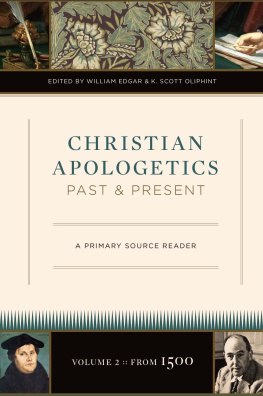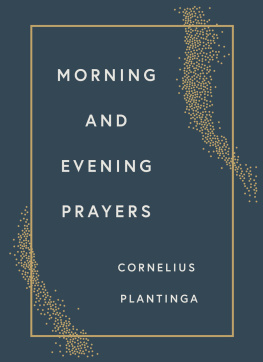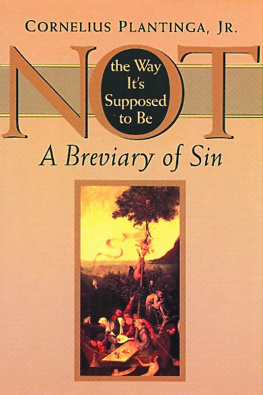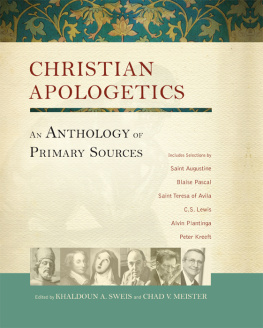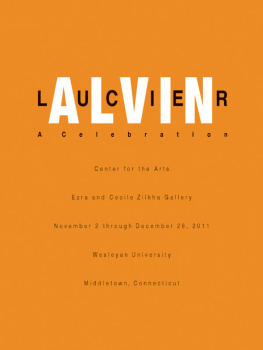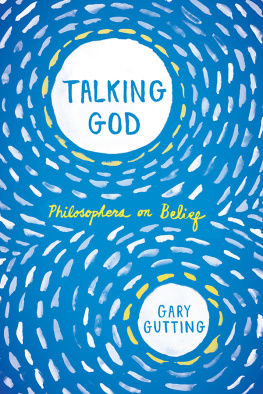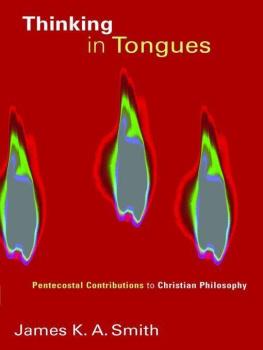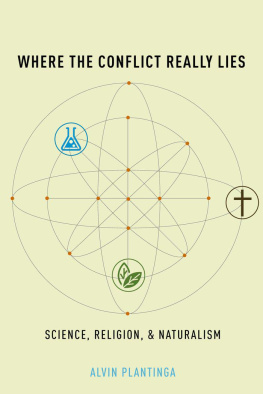Plantinga Alvin - Warranted Christian Belief
Here you can read online Plantinga Alvin - Warranted Christian Belief full text of the book (entire story) in english for free. Download pdf and epub, get meaning, cover and reviews about this ebook. year: 2000, publisher: Oxford University Press, Incorporated, genre: Religion. Description of the work, (preface) as well as reviews are available. Best literature library LitArk.com created for fans of good reading and offers a wide selection of genres:
Romance novel
Science fiction
Adventure
Detective
Science
History
Home and family
Prose
Art
Politics
Computer
Non-fiction
Religion
Business
Children
Humor
Choose a favorite category and find really read worthwhile books. Enjoy immersion in the world of imagination, feel the emotions of the characters or learn something new for yourself, make an fascinating discovery.

- Book:Warranted Christian Belief
- Author:
- Publisher:Oxford University Press, Incorporated
- Genre:
- Year:2000
- Rating:4 / 5
- Favourites:Add to favourites
- Your mark:
- 80
- 1
- 2
- 3
- 4
- 5
Warranted Christian Belief: summary, description and annotation
We offer to read an annotation, description, summary or preface (depends on what the author of the book "Warranted Christian Belief" wrote himself). If you haven't found the necessary information about the book — write in the comments, we will try to find it.
Warranted Christian Belief — read online for free the complete book (whole text) full work
Below is the text of the book, divided by pages. System saving the place of the last page read, allows you to conveniently read the book "Warranted Christian Belief" online for free, without having to search again every time where you left off. Put a bookmark, and you can go to the page where you finished reading at any time.
Font size:
Interval:
Bookmark:
WARRANTED CHRISTIAN BELIEF
Alvin Plantinga

Oxford University Press
Oxford New York
Athens Auckland Bangkok Bogot Buenos Aires Calcutta
Cape Town Chennai Dar es Salaam Delhi Florence Hong Kong Istanbul
Karachi Kuala Lumpur Madrid Melbourne Mexico City Mumbai
Nairobi Paris So Paulo Singapore Taipei Tokyo Toronto Warsaw
and associated companies in
Berlin Ibadan
Copyright 2000 by Alvin Plantinga
Published by Oxford University Press, Inc.
198 Madison Avenue, New York, New York 10016
Oxford is a registered trademark of Oxford University Press.
All rights reserved. No part of this publication may be reproduced,
stored in a retrieval system, or transmitted, in any form or by any means,
electronic, mechanical, photocopying, recording or otherwise,
without the prior permission of Oxford University Press.
Library of Congress Cataloging-in-Publication Data
Plantinga, Alvin.
Warranted Christian belief / Alvin Plantinga.
p. cm.
Includes index.
ISBN 019-5131932 (pbk.)ISBN 019-5131924
1. Apologetics. 2. ChristianityPhilosophy. 3. Faith and reasonChristianity.
I. Title.
BT1102 .P57 1999
230.01dc21 98.054362
1 3 5 7 9 8 6 4 2
Printed in the United States of America
on acid-free paper
To
WILLIAM P. ALSTON
Mentor, Model, Friend
This book is about the intellectual or rational acceptability of Christian belief. When I speak here of Christian belief, I mean what is common to the great creeds of the main branches of the Christian church, what unites Calvin and Aquinas, Luther and Augustine, Menno Simons and Karl Barth, Mother Teresa and St. Maximus the Confessor, Billy Graham and St. Gregory Palamasclassical Christian belief, as we might call it.
Classical Christian belief includes, in the first place, the belief that there is such a person as God. God is a person: that is, a being with intellect and will. A person has (or can have) knowledge and belief, but also affections, loves, and hates; a person, furthermore, also has or can have intentions, and can act so as to fulfill them. God has all of these qualities and has some (knowledge, power, and love, for example) to the maximal degree. God is thus all-knowing and all-powerful; he is also perfectly good and wholly loving. Still further, he has created the universe and constantly upholds and providentially guides it. This is the theistic component of Christian belief. But there is also the uniquely Christian component: that we human beings are somehow mired in rebellion and sin, that we consequently require deliverance and salvation, and that God has arranged for that deliverance through the sacrificial suffering, death, and resurrection of Jesus Christ, who was both a man and also the second member of the Trinity, the uniquely divine son of God. I shall use the term Christian belief to designate these two components taken together. Of course, I realize that others may use that term more narrowly or more broadly. There is no need to argue about words here: the beliefs I mentioned are the ones I shall discuss, however exactly we propose to use the term Christian. I also recognize that there are partial approximations to Christian belief so understood, as well as borderline cases, beliefs such that it simply isnt clear whether they qualify as Christian belief. All of this is true, but as far as I can see, none of it compromises my project.
Accordingly, our question is this: is belief of this sort intellectually acceptable? In particular, is it intellectually acceptable for us, now? For educated and intelligent people living in the twenty-first century, with all that has happened over the last four or five hundred years? Some will concede that Christian belief was acceptable and even appropriate for our ancestors, people who knew little of other religions, who knew nothing of evolution and our animal ancestry, nothing of contemporary subatomic physics and the strange, eerie, disquieting world it postulates, nothing of those great masters of suspicion, Nietzsche, Marx, and Freud, nothing of the acids of modern historical biblical criticism. But for us enlightened contemporary intellectuals (so the claim continues) things are wholly different; for people who know about those things (people of our rather impressive intellectual attainments), there is something naive and foolish, or perhaps bullheaded and irresponsible, or even vaguely pathological in holding onto such belief.
But cant we be a little more precise about the objection? What, exactly, is the problem? The answer, I think, is that there are alleged to be two main problems. Western thought since the eighteenth-century Enlightenment has displayed at least two distinct styles of objection. First, there have been de facto objections: objections to the truth of Christian belief. Perhaps the most important de facto objection would be the argument from suffering and evil. This objection goes all the way back to Democritus in the ancient world but is also the most prominent contemporary de facto objection (see ). It has often been stated philosophically, but has also received powerful literary expression (for example, in Dostoevskis The Brothers Karamazov). The objection goes as follows: according to Christian belief, we human beings have been created by an all-powerful, all-knowing God who loves us enough to send his son, the second person of the divine Trinity, to suffer and die on our account; but given the devastating amount and variety of human suffering and evil in our sad world, this simply cant be true.
The argument from evil may be the most important de facto objection, but it isnt the only one. There are also the claims that crucial Christian doctrinesTrinity, Incarnation, or Atonement, for exampleare incoherent or necessarily false. Many have argued that the Christian doctrine of three divine persons with one nature cannot be coherently stated; many have claimed that it is not logically possible that a human being, Jesus of Nazareth, should also be the second person of the divine Trinity, and many have thought it impossible that one persons sufferingeven if that person is divineshould atone for someone elses sins. Indeed, there are claims that the advance of science has somehow shown that there really isnt any supernatural realm at allno God who has created us and governs our world, let alone a Trinity of divine persons, one of whom became a human being, died, and rose from the dead, thereby redeeming human beings from sin and suffering.
De facto objections, therefore, are many, and they enjoy a long and distinguished history in Western thought. Even more prevalent, however, have been de jure objections. These are arguments or claims to the effect that Christian belief, whether or not true, is at any rate unjustifiable, or rationally unjustified, or irrational, or not intellectually respectable, or contrary to sound morality, or without sufficient evidence, or in some other way rationally unacceptable, not up to snuff from an intellectual point of view. There is, for example, the Freudian claim that belief in God is really a result of wish fulfillment; there is the evidentialist claim that there isnt sufficient evidence for Christian belief; and there is the pluralist claim that there is something arbitrary and even arrogant in holding that Christian belief is true and anything incompatible with it false. De facto and de jure objections are separate species, but they sometimes coincide. Thus there is a de jure objection from suffering and evil as well as a
Next pageFont size:
Interval:
Bookmark:
Similar books «Warranted Christian Belief»
Look at similar books to Warranted Christian Belief. We have selected literature similar in name and meaning in the hope of providing readers with more options to find new, interesting, not yet read works.
Discussion, reviews of the book Warranted Christian Belief and just readers' own opinions. Leave your comments, write what you think about the work, its meaning or the main characters. Specify what exactly you liked and what you didn't like, and why you think so.

